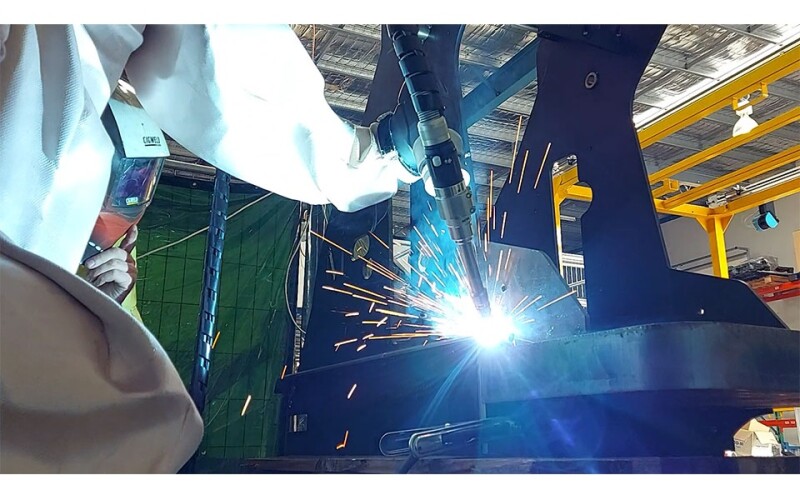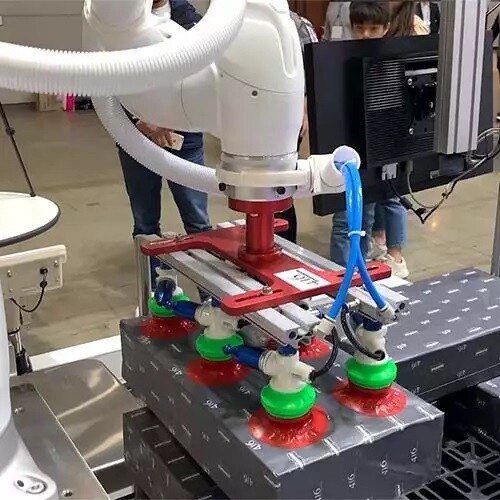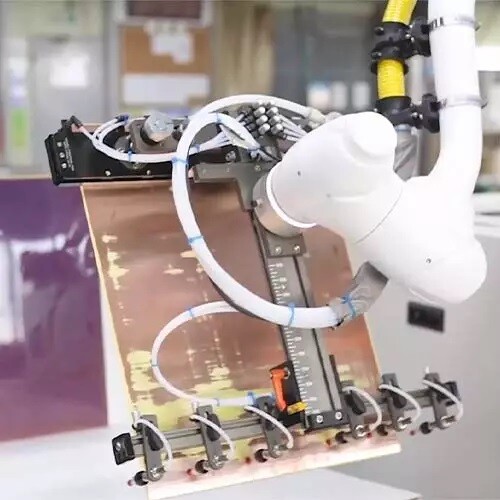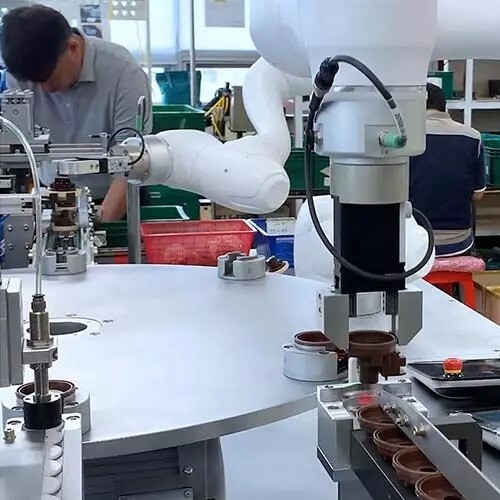Diverseco (Australia) - Cobots or collaborative robots are compact, intuitive and flexible, purposely designed for direct human interaction within a shared, collaborative workspace. Cobots contrast sharply with industrial robots which are typically large and fixed systems, ideal for production environments that very heavy duty or that may require higher payloads, longer reach, or higher throughput and cycle speeds.
For manufacturers, cobots are the answer to the question: how can robots and humans co-exist safely in an operating environment? Where their industrial robotic cousins require caged-off environments and are incompatible with working alongside humans, cobots are the exact opposite and have been designed with human collaboration as the outcome.
The benefits of cobots for manufacturers is broad and extensive, and we will analyse the top 5 benefits of cobots for manufacturers below.
Flexibility and improved autonomy:
The first benefit of cobots for manufacturers is the fact that cobots provide a new era of flexibility. These collaborative systems can operate virtually anywhere in production environments, owing to their design and distinctly cage-free environment, with quick-change, plug-and-produce end of arm tools enabling cobots to more easily redeploy across a broad range of applications.
As well, Cobots have user intuitive teaching pendants that enable non-programmers to teach the cobot how and where to move.
On the other hand, with industrial robots, it is often the case that manufacturers have to design their operations around the robot due to the significant space and caged-off area requirements. As very involved robotics integration and programming can be required, this has the potential to reduce the manufacturer’s autonomy.
With cobots this is typically not necessary. Cobots typically occupy a similar physical footprint to a human worker, they can be moved to other areas of your production environment, and can be re-deployed to new tasks entirely.
Increased productivity & worker capabilities:
Wherever you choose to have your cobot deployed, in collaborative operations you can expect a significant increase in the capabilities and overall productive output of your workers. In manufacturing operations this is due to the results of a re-imagined production process, one where humans and robots work collaboratively to achieve the same end goal– the cobots are assigned the low-mix, high-volume tasks that enables human workers to perform the more complex and specialised tasks.
Cobots are a way to up-skill human workers by reducing (or altogether eliminating) the time-consuming, menial tasks from their everyday operation, empowering them to perform the complex tasks for which they are best suited.
Higher quality, consistency, accuracy, and repeatability
One of the more widely understood benefits of a cobot is in its robotic ability to perform set tasks consistently and accurately with less variation compared to a human counterpart. Once programmed, the cobot will perform the task consistently with the same productivity, accuracy, and quality. Cobots aren’t subject to the same factors, like fatigue, mood, or distraction, that can sometimes influence human productivity. As such they can work two or three shifts day after day and achieve the desired quality, consistency, accuracy, and repeatability without fail.
They aren’t affected by fatigue, stress, or any other biological factors that limit a human’s ability to effectively perform production tasks – and ultimately keep the production process moving.
Reduction in WHS incidents:
The ability for cobots to positively influence your WHS risk profile and reduce employee injuries is an important benefit. Just as with industrial robots, cobots love to perform dull, dirty, and dangerous manufacturing jobs. Through assigning cobots to production tasks that require strenuous lifting and repetitive movement, cobots can improve your overall WHS risk profile by eliminating these injury-prone tasks. Cobots are ideally suited for highly repetitive tasks in a collaborative environment, with most injuries relating from these same tasks.
Expands automation potential to small and medium manufacturers:
Above we mentioned the space requirements for cobots being more similar to that of a human worker – a significant benefit the cobot has over an industrial robot.
The operational factors that small to medium manufacturers often face (lower capital funding or available funds, production space, and fewer overall resources) can be aspects that make industrial robots a difficult fit. Cobots represent a significantly smaller barrier to entry for small to medium manufacturers looking to begin automating various application areas in their production processes.
A significant advantage for the Cobot over Industrial Robots relates to implementation time – this is vital for SME’s. While an Industrial Robot installation is currently an 8-12+ month process, a fully operational Cobot installation can be achieved in 2-3months with an ROI of 12-18 months in many cases.
Specific to manufacturers, the benefits of cobots are found within five main application categories for which they are best suited.
Cobot application areas:
The first application area is materials handling, such as picking, placing, and palletising.
The second is in the automation of welding tasks – particularly in metal fabrication – in a collaborative capacity. In this space the cobot is not intended to replace human welders, instead it is suited to augment the capabilities of human welders, working side by side with human welders, ideally suited for low-volume, high-mix production environments. We’ve released our own cobot welding system called the Weld Mate 355 that is perfect for collaboratively working alongside a human welder and enhancing their capabilities and throughput.
The third primary application for cobots is machine tending and is one whereby the cobot can altogether replace a human operator at the CNC machine. The menial task of machine tending is ideally automated by cobots, owing to their small footprint and flexibility.
The fourth is within assembly processes – with a whole range of compatible end-of-arm-tools (the “hands” of the cobot) the myriad of assembly tasks can be automated with the right tooling.
The fifth application is the whole range of emerging proof-of-concepts – think of it as the “you-name-it” category of applications. The benefits of cobots for manufacturers are broad with potentially limitless applications that represent a crucial advantage for Australian manufacturing and industry where flexibility, agility, resilience, and reliability in the face of unforeseen disruptions are highly prized qualities.
Wrapping up:
The benefits that cobots can provide manufacturers across virtually all industries continues to grow, particularly across the five application areas mentioned above.
These benefits: flexibility and improved autonomy; increased productivity and worker capabilities; reduction in WHS incidents; and the low barrier to entry for small to medium manufacturers, are being realised by Australian manufacturers at an increasing rate year-to-year.
As the Australian exclusive distributors and systems integrators for Doosan Robotics’ range of cobots, and in conjunction with OnRobot’s extensive range of cobot end effectors, Diverseco is the go-to Australian single-vendor powerhouse for your manufacturing robotics automation needs.















































Interested? Submit your enquiry using the form below:
Only available for registered users. Sign In to your account or register here.